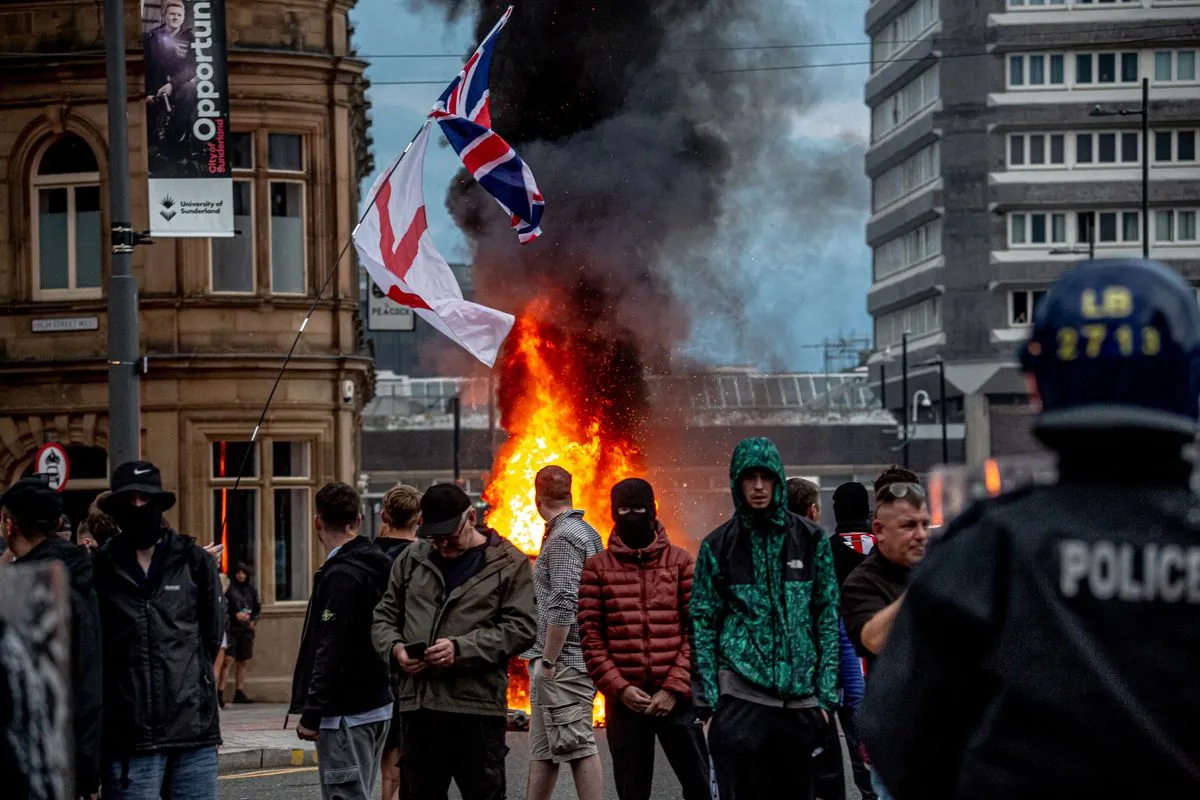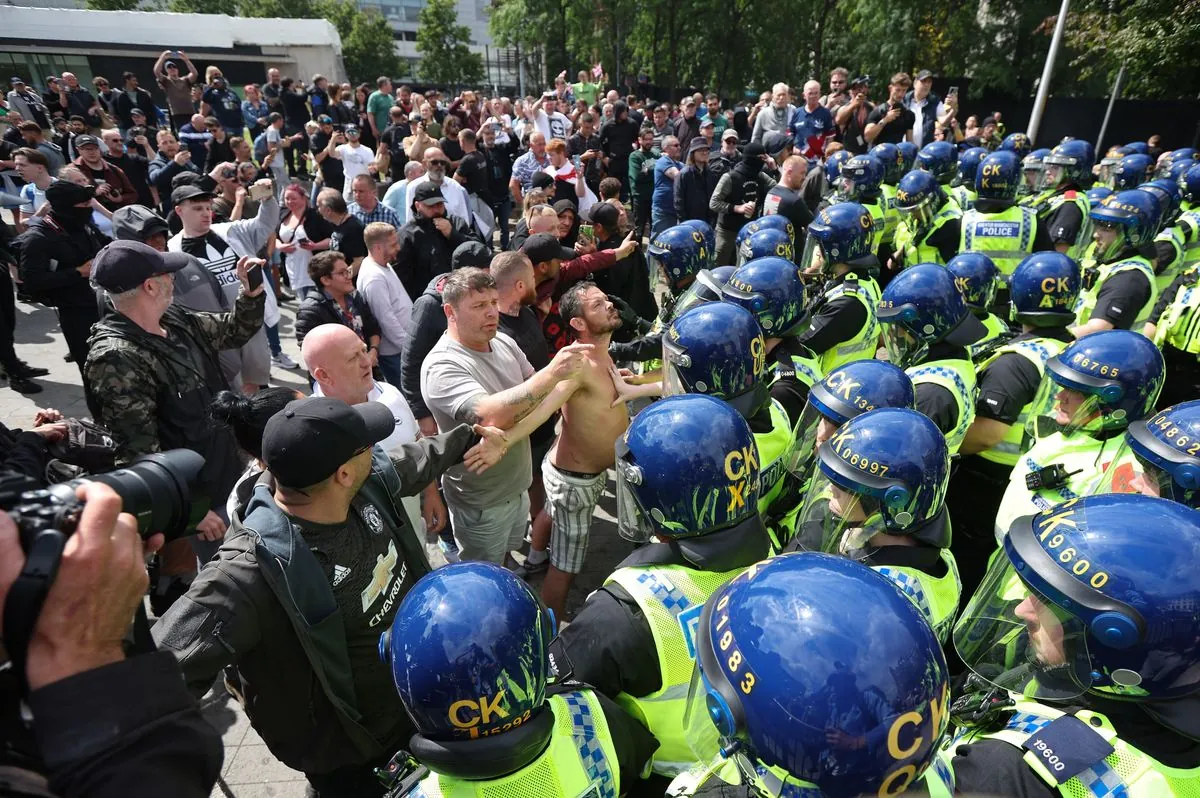UK Grapples with Anti-Immigrant Unrest Sparked by False Social Media Claims
Britain faces widespread riots following misinformation about a murder case. Government increases prison capacity as international travel warnings issued. Concerns grow over potential ethnic clashes.

Recent unrest has gripped Britain following the spread of false information on social media regarding a murder case in Southport. The misinformation, which incorrectly identified the suspect as an Islamist migrant, has led to widespread anti-immigrant riots across the country.
In response to the escalating situation, the British government has taken swift action. The Justice department has secured nearly 600 additional prison places to accommodate those involved in the violence. This move comes as the UK grapples with an ongoing jail overcrowding crisis, forcing the early release of some prisoners. Approximately 400 individuals have been arrested thus far in connection with the riots.
Justice Secretary Shabana Mahmood issued a stern warning to potential rioters, emphasizing the readiness of law enforcement and the justice system to address any further unrest.
The severity of the situation has prompted several countries, including India, Australia, and Nigeria, to issue travel warnings for their citizens visiting the UK. This international response highlights the global impact of the unrest.

Local residents have expressed shock at the violence. Riva Peacock, a 22-year-old retail worker from Liverpool, shared her perspective on the situation, noting the tendency to scapegoat vulnerable populations for societal issues.
Prime Minister Keir Starmer has vowed to hold accountable those responsible for attacks on mosques, migrant housing, and law enforcement. The unrest has seen violence against police, counter-protesters, and widespread property damage.
Legal actions are already underway, with a 28-year-old man charged for inciting racial hatred through social media posts related to the disorder. Additionally, a 14-year-old has pleaded guilty to violent disorder.
The UK has a complex history with immigration, having implemented various policies over the years. The current points-based immigration system, introduced after Brexit, represents the latest approach to managing immigration. The UK is also a signatory to the 1951 Refugee Convention and its 1967 Protocol, underlining its commitment to international refugee protection standards.
Online messages have indicated plans for further protests targeting immigration centers and law firms assisting migrants. This development raises concerns about potential escalation and the safety of asylum-seekers and legal professionals.
The riots have seen attacks on hotels housing asylum-seekers from Africa and the Middle East, with protesters chanting anti-immigrant slogans. Mosques have been pelted with rocks, and there have been reports of assaults on ethnic minorities.
In Birmingham, videos showed a group of Asian men gathering with Palestinian flags in response to potential anti-migrant protests in the area. This development has sparked fears of potential clashes between different ethnic groups, reminiscent of the race riots that occurred in northern English towns in 2001.
The government has attributed the recent unrest to far-right agitators, football hooligans, and young people, rather than a proportionate response to immigration concerns. This stance highlights the complex interplay between immigration policies, social cohesion, and public perception in the UK.
As the situation continues to unfold, the UK faces the challenge of addressing the immediate unrest while also tackling the underlying issues that have contributed to this crisis.


































